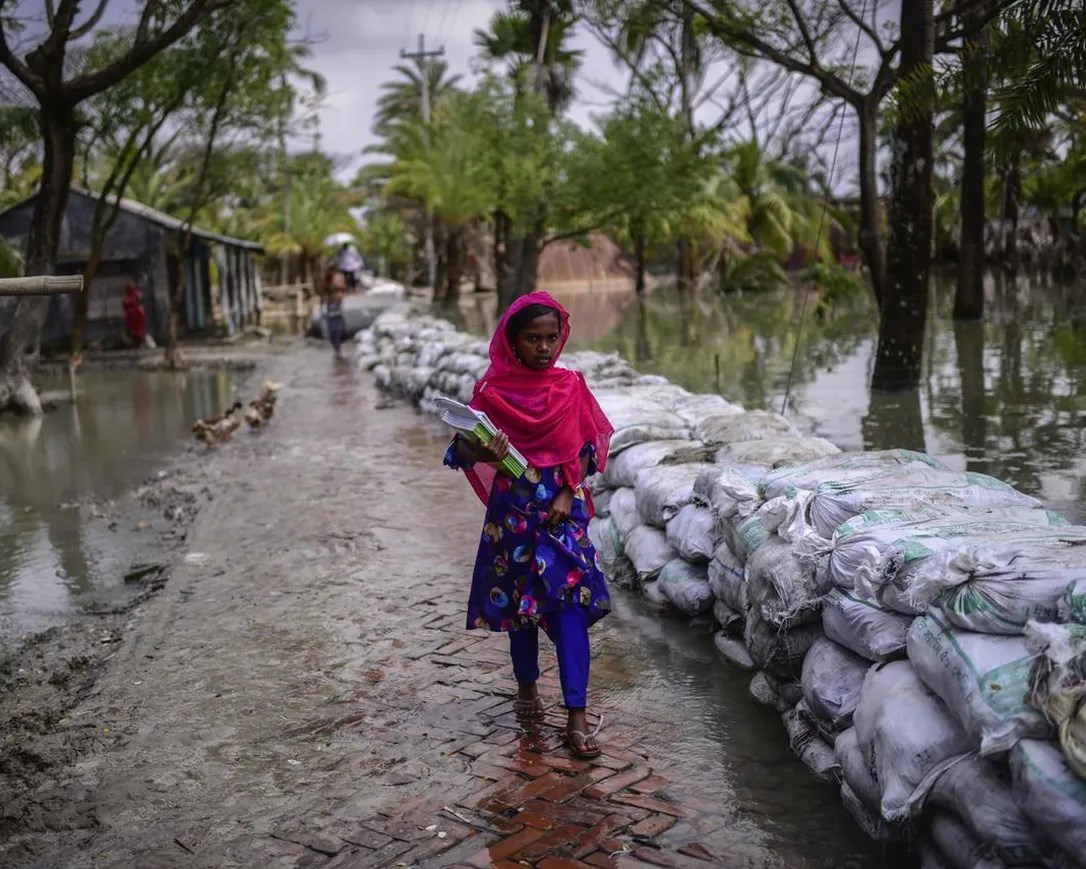Rich nations stop climate aid to poor at UN talks
This year's UN climate summit will exclude climate aid to poor nations.
-

Rich nations halt climate aid to the poor at UN talks.
The European Union and the United States have resisted efforts to put financial assistance for poor countries suffering from the devastating effects of global warming firmly on the agenda for this year's UN climate summit.
Observers and campaigners at a ten-day preparatory meeting in Bonn, Germany, which ends Thursday, expressed frustration with developed nations' refusal to formally discuss how poor countries can get more aid when disasters strike.
“Rich countries, particularly the EU, spiked the discussion about loss and damage at every single turn,” said Teresa Anderson of the campaign group ActionAid International.
Delegates from developing countries hoped that increased awareness of the severe economic costs that global warming is already causing for billions of people around the world would help move the needle on an issue that has long divided rich and poor countries.
Read next: Poor countries fear exclusion from UN Climate Change Conference
Last month, officials from the Group of Seven leading economies acknowledged for the first time the need for more public and private money to avert and address the "adverse impacts of climate change."
The meeting in Bonn, which is home to the United Nations Climate Change Office, was intended to lay the groundwork for the upcoming climate summit in Egypt's seaside resort of Sharm El-Sheikh in November.
“Whether it was about setting up a new finance facility, providing funds, organizing technical support, or even just including the issue on the agenda for discussion at COP27 later this year, rich countries continued to block, block, block,” said Anderson.
She accused rich countries of a "terrifying disconnect" from the real world, citing the drought-induced famine that is currently threatening millions in the Horn of Africa.
Read next: UK failed to protect people from climate change: Expert
Her remarks echoed those of UN Secretary-General Antonio Guterres, who accused many governments of "dragging their feet" on climate action earlier this week.
Seasoned observers of international climate meetings had warned against expecting delegates in Bonn to make significant progress on long-standing points of contention, particularly those involving large financial commitments.
“Many of the issues are above their pay grade,” said Alden Meyer of E3G, an environmental think tank. Still, the outcome was slimmer than expected, he said.
Climate aid is likely to be discussed at a virtual meeting of major economies hosted by US President Joe Biden on Friday, as well as at the G-7 leader's summit in Germany on June 26-28.
Patricia Espinosa, the head of the UN Climate Office, had urged delegates not to despair at the start of the meeting in Bonn, citing recent progress in combating global warming.
Participants were encouraged by an announcement Thursday by Australia's new government, which formally pledged to raise its target for reducing greenhouse gas emissions by the end of the decade to 43% of 2005 levels. The previous administration's goal was to reduce emissions by 26% to 28% by 2030, far short of the targets set by other major polluters.
Read next: UN: Over 100m People in Africa Threatened by Climate Change

 3 Min Read
3 Min Read









